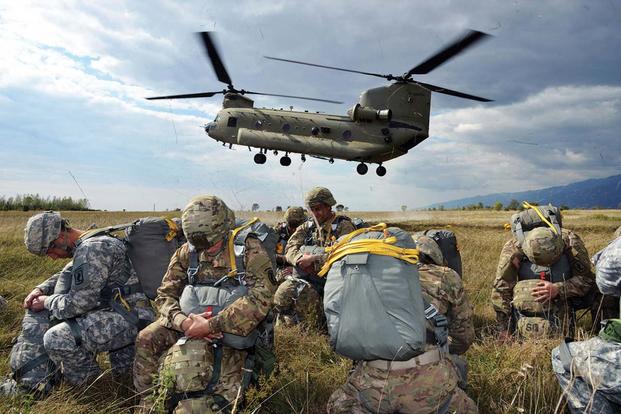The U.S. Army's top officials on Tuesday had to defend the service's decision to stop buying CH-47 Chinook helicopters to pay for futuristic aircraft and other modernization programs.
Last year, Army officials made a decision to find about $30 billion to help pay for the service's modernization strategy over the next five years. The service did that by cutting or terminating 186 existing programs, Army Secretary Mark Esper told members of the House Appropriations Committee's defense subcommittee as he described the proposed fiscal 2020 budget request.
Subcommittee chairman Rep. Pete Visclosky, D-Indiana, said he appreciated that the Army "has come in with 186 recommendations as far as reductions," but said he is concerned that CH-47 Chinooks are on the list.
"I have heard from a number of people from a particular state that they are not happy with that particular change," Visclosky said.
He asked Army leaders to explain why the service decided to delay procurement of the Chinook Block II upgrade for five years, when a year ago it submitted the effort as a program of record.
"What changed in that year and what happens during the intervening future five years?" Visclosky asked.
Esper said the Army is still going to buy CH-47s for Special Operations Command units.
"The decision, I think, for the CH-47s for the conventional Army -- what probably changed was, when the National Defense Strategy was issued, it told us to move away from counter-insurgency to high-intensity conflict," he said.
Esper said that the Army decided it needed to prioritize advanced aircraft under the Future Vertical Lift program, such as the Future Long Range Assault Aircraft and "more importantly" the Future Attack Reconnaissance Aircraft.
"We needed a capability that could fly great distances at great speeds and penetrate, let's say, a Russian air defense system, so it shifted what our needs were for the out years," he explained.
Esper, however, pointed out that the current fleet of aircraft, including the Chinook, will be in service for decades.
The current models of the CH-47 "are the youngest aircraft" in the inventory and "will be with us through the 2030s, probably the 2040s," he said.
"We feel very comfortable with where we stand with the current fleet," Esper said. "It's a very capable fleet; it still allows us overmatch with regard to our adversaries."
-- Matthew Cox can be reached at matthew.cox@military.com.











